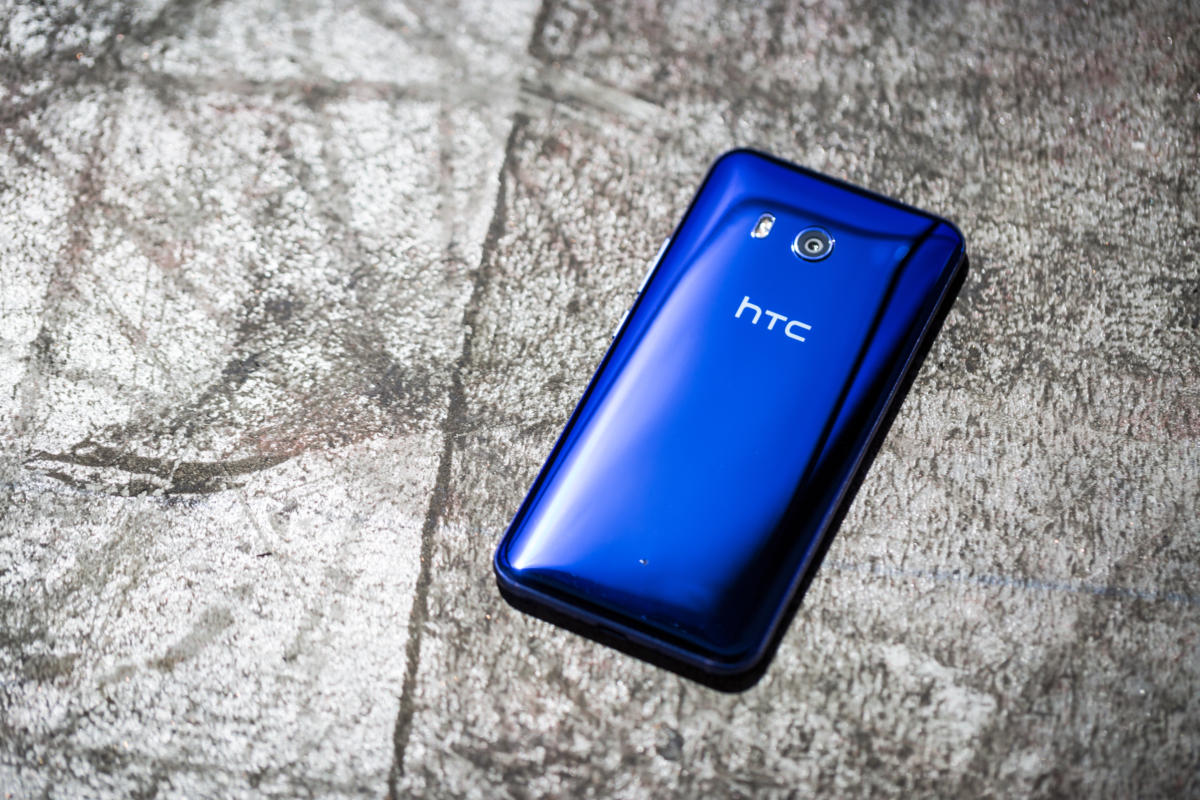Google buys HTC's smartphone brains for $1.1 billion - rungealksomed

Adam Patrick Murray River/IDG
Nearly four years after selling Motorola off to Lenovo, Google is purchasing into yet some other longtime Humanoid partner, HTC. Merely instead of purchasing the company outright, Google is buying its brains.
Google already knows these brains advisable. "A team of HTC talent leave join Google as divide of the hardware organization," Google hardware SVP (and former Motorola president) Rick Osterloh said Thursday. Reports from the New York State Times and early sources have pegged the routine of employees at approximately 2,000 (or dormie to $550,000 per employee, if you're doing the mathematics). "These future fellow Googlers are amazing folks we've already been working with closely on the Pixel smartphone line, and we'rhenium excited to see what we can do together As unmatched team up."
Google likewise gets not-inside rights to HTC intellectual property as part of the deal. But middling surprisingly, the understanding doesn't look to admit access to HTC's manufacturing capabilities.
The story behind the story:The look at signifies that Google is taking its new computer hardware sectionalisation and "Made by Google" device push in earnest. It also shows lessons learned after Google bought Motorola in 2011. It took nearly two eld of flushing ho-hum hardware through the company's pipeline before Google finally made its mark with 2013's brilliant Moto X. By getting just the people and not the products, the original hires can start functional on the Pixel 3 and other devices forthwith. (The Picture element 2 is expected to launch at Google's October 4 hardware event.)
Why Google bought HTC's brains
While Google mostly bought Motorola for its thick patent portfolio, the purchase of HTC's engineering natural endowment appears designed to improve its hardware chops. Until now, Google has had to partner with device makers like Huawei, LG, and yes, HTC itself to create its self-branded Nexus and Pixel phones. This deal lets Google seize more direct control all over its hardware endeavors, though it wish shut up need secure manufacturing for its devices. It wouldn't be surprising if the deal included or s HTC Vive talent as well, inclined Google's interest in mobile VR.
HTC's mobile team has a long history with Android. Information technology also boasts a undiversified track record for producing flat-out excellent phones and tablets, often in direct collaboration with Google.
The HTC Dream (a.k.a. the T-Mobile G1) was the world's first Android speech sound in 2008. Information technology was a touchscreen device with a slide-out QWERTY keyboard. HTC also made the first Nexus I phone and the last Link 9 tablet. It besides manufactures Google's Pixel and Pixel XL and is rumored to be the manufacturer of the forthcoming Pel 2.
HTC has struggled in recent eld. It was once the darling of the Android community, with the industrial HTC One and a long line of top-notch phones packing Beats Audio frequency preceding to Orchard apple tree's Beats attainment. It's since slipped under intense competition from Samsung, Huawei, and others. HTC overhauled its smartphone lineup this twelvemonth with new U branding and a mirror-like-minded "liquefiable" open. Despite a strong display by the stunning, soft U11 ($650 happening Amazon), however, HTC has undone to bit-musician status in the Humanoid world.
Now, however, the brains behind those astral devices put to work for Google, which clearly has big plans for prox hardware. Watch out, Samsung.
What happens to HTC now?
HTC says it "volition continue to have best-in-classify engineering talent," and those people are temporary on a successor to the HTC U11. Right figures weren't provided, merely the New York Times reports that HTC CFO Peter Shen stated that the ship's company would still have more than 2,000 research and invention staffers afterward Google's acquihire, compared to the roughly 4,000 people currently hired.
The company also says the $1.1 1000000000 deal will enable "a more streamlined product portfolio," which makes you wonderment about the future of HTC's manoeuvrable card. HTC's phone business beautiful much cratered over the past few years, with the company announcing its ninth straight quarterly loss in August 2017. I wouldn't be dumbfounded to see HTC's next smartphone role evolve into something similar to BlackBerry and Nokia's current strategy: Licensing its distinguish out for use on hardware created, designed, and produced by fractional-party manufacturers.
 Adam Patrick Murray River/IDG
Adam Patrick Murray River/IDG It sounds comparable HTC is double down on its Vive VR headset business as well. "Today's tidings enables #TeamHTC to stay on investing, innovating & leading in emergent technical school, including #IoT #VR #AR #AI @HTCvive," the company aforesaid in a tweet.
The Vive ($599 on Amazon) is currently the topper PC-based VR headset available, and trademarks paint a picture a standalone "Vive Centre" headset may also be on the way. The Focus is expected to be powered by Qualcomm hardware and Google's Daydream VR computer software, according to UploadVR, with six-degrees-of-exemption (6DOF) positional trailing similar to what you find in the PC-based Vive and Oculus Rift.
Note: When you buy up something after clicking links in our articles, we may earn a small commission. Read our affiliate link policy for to a greater extent details.
Brad Chacos spends his days dig through background PCs and tweeting too much.
Source: https://www.pcworld.com/article/407398/google-buys-2000-htc-employees-for-11-billion-to-get-instant-smartphone-chops.html
Posted by: rungealksomed.blogspot.com


0 Response to "Google buys HTC's smartphone brains for $1.1 billion - rungealksomed"
Post a Comment